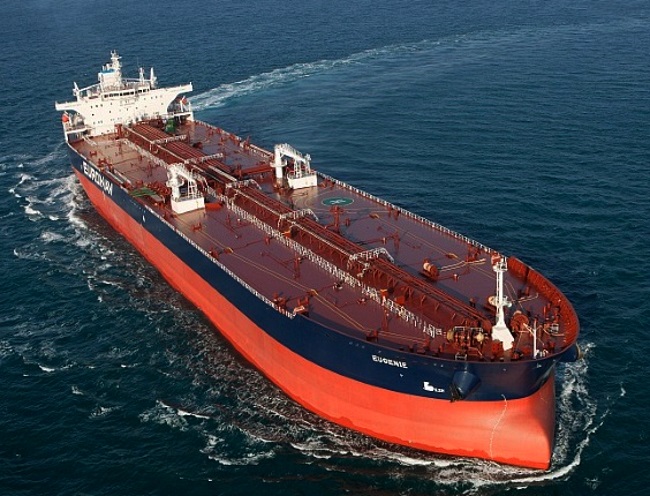India is now the third biggest importer of crude oil, with a market share of 11% of global crude oil imports. In its latest weekly report, shipbroker Banchero Costa said that “2022 has turned out to be a very positive year for crude oil trade, despite the surging oil prices and risks of economic recession. In the full 12 months of 2022, global crude oil loadings went up +8.7% yo-y to 2,049.8 mln tonnes, excluding all cabotage trade, according to vessels tracking data from Refinitiv. This was well above the 1,886.3 mln tonnes in Jan-Dec 2021, but slightly below the 2,110.5 mln tonnes in the same period of 2019.
According to the shipbroker, “exports from the Arabian Gulf were up +12.8% y-o-y to 879.5 mln t in 2022, and accounted for 42.9% of global seaborne crude oil trade. Exports from Russia have also increased by +10.3% y-o-y to 218.4 mln tonnes, or 10.7% of global trade. From the USA, exports surged by +22.8% y-o-y to 165.0 mln t. From West Africa, however, exports declined -2.3% y-o-y to 170.7 mln t. From the North Sea, exports were also down by -1.9% y-o-y to 107.4 mln tonnes in Jan-Dec 2022. In terms of demand, seaborne imports into the European Union (27) increased by +12.2% y-o-y to 451.7 mln t in Jan-Dec 2022, with the EU accounting for 22.3% of global seaborne crude oil imports. Imports to India also surged +11.5% y-o-y to 223.8 mln t in 2022. Imports to China, however, declined by -2.6% y-o-y to 438.7 mln t, the lowest level since 2018”.
Banchero Costa said that “in 2022, India was the third largest seaborne importer of crude oil in the world, after the European Union and Mainland China. Last year, India accounted for 11.0% of global crude oil imports, in what remains a very fragmented market. The world’s top importer, the EU, accounts for 22.3% of global volumes, and China for 21.6% Imports into India have grown rapidly over the years, driven both by domestic demand but also due to the establishment of a large exportoriented refining industry. India’s seaborne crude oil imports in the 12 months of 2022 increased by +11.5% y-o-y to 223.8 mln tonnes, from 200.7 mln tonnes in 2021. Volumes were particularly high in 2Q 2022 with 59.5 mln tonnes, up +18.1% y-o-y and the strongest quarter on record. The major crude oil import terminals in India are: Jamnagar (64 mln tonnes discharged in 2022), Vadinar (43 mln tonnes in 2022), Paradip (29 mln tonnes), Mundra (18 mln tonnes), Mumbai (16 mln tonnes), Cochin (15 mln tonnes), Chennai (9 mln tonnes), Visakhapatnam (8 mln tonnes). About 51 percent of crude oil volumes discharged in India in 2022 were carried in VLCCs, about 35 percent of Suezmaxes, and 13 percent on Aframaxes. The vast majority of imports are sourced from the Arabian Gulf, accounting for 59% of India’s total imports in 2022. Volumes from the Arabian Gulf to India increased by +7.4% y-o-y in 2022 to 133.0 mln tonnes”.
The shipbroker added that “the single largest supplier to India is Iraq, with 51.6 mln tonnes in the 12 months of 2022, or 23 percent of India’s total imports. In second place was Saudi Arabia, with 40.1 mln tonnes in 2022, or 18 percent of the total. The UAE accounted for 21.8 mln tonnes, or 10 percent, with Kuwait in fourth spot with 11.9 mln tonnes and 5 percent in 2022. Aside from the Gulf, the largest exporter to India is now Russia. In 2022, India imported 33.4 mln t of crude oil from Russia, up +705.1% yo-y from just 4.1 mln t in 2021. Russia now accounts for 15% of India’s crude oil imports. On the other hand, volumes from West Africa to India declined by -23.4% y-o-y in 2022 to 18.2 mln t. Shipments from the United States to India also declined by -16.1% y-o-y in 2022 to 15.7 mln t. From South America there has also been a -29.7% y-o-y decline to 6.3 mln t in 2022. From Mexico, volumes were down by -31.9% y-o-y to 4.7 mln t in 2022”, Banchero Costa concluded.
Source: Hellenic Shipping News





